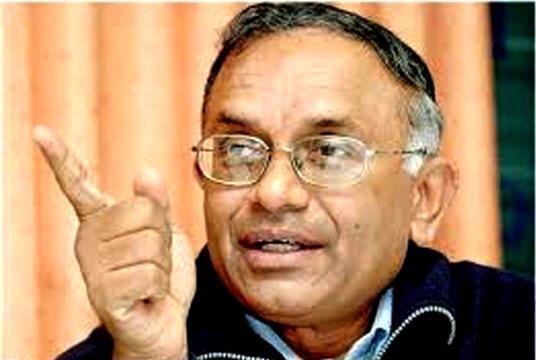
A senior member of the Constitutional Assembly allayed fears that the present Constitution will lead to the making of a ‘Tamil Homeland’, reiterating that the proposals have ensured the unitary character and the foremost place for Buddhism.
Dr. Jayampathy Wickremaratne who is leading the present Constitution making process said, “There are allegations that there are federal features included in the draft for a new constitution, these are all false propaganda.”
He said in the proposed draft, which is only a discussion paper, Sri Lanka is declared to be not only an ‘undivided state’ but it has also been emphasised as ‘indivisible’.
He said in the present Constitution, it only says sovereignty is with the people and its inalienable. The Steering Committee has gone further and said sovereignty is indivisible. In a federal state, sovereignty is divided between the centre and the states.
Citing the United States Constitution, Dr.Wickremaratne said, “even to change a comma of the US Constitution the Senate and the House of Representatives at the Centre must pass the proposal with a two-thirds majority. In addition two thirds of the states must also agree for it to become law, even if the change has nothing to do with the states.”
In the case with India, which a quasi Federal state, to change certain provisions of the Constitution, they need a two-thirds majority in the two Houses of the Centre plus the consent of the majority of the states.
“In India the sovereignty is partially divided but in the US it is completely divided,” he explained adding that the Steering Committee proposals are not for a Federal form of government. He said there were safeguards against cessation.
It has been emphasised in the report that the Constitution can be amended or a new constitution can be enacted only by the central legislature (by Parliament) and by people voting at a referendum. It shows that the provinces has nothing to do with the amendment of the Constitution. The Provincial Councils can be abolished if Parliament passes it with a two-thirds majority.
“In a federation you cannot do that,” Dr.Wickremaratne said adding that it was a very clear division. In addition, if due to the acts of the Provincial Councils, there is a threat to the territorial integrity and soverignity of the country, there is a proposal to give the centre powers to intervene. This is not a power that is available even now.
The President can take over the powers of the PCs, the board of ministers or the governor. And in a very extreme situation, he can dissolve the PCs. “These are powers do not exist even in the present constitution and these are clear definitions given of a unitary state.”
These proposals will be discussed at the Constitution Assembly.
A series of meetings have been scheduled by the Prime Minister Ranil Wickremesinghe from October 30 to November 1.
Dr.Wickremaratne said that there may be more sittings scheduled after that to discuss the concerns raised by the people and prepare the final report.
“On Buddhism the provisions are very clear, there are two options proposed, Buddhism has been given the foremost place. and there is a duty cast on the state to, safeguard and foster the Buddha Sasana,” he said.
In any case these are proposals for discussion, he added.
